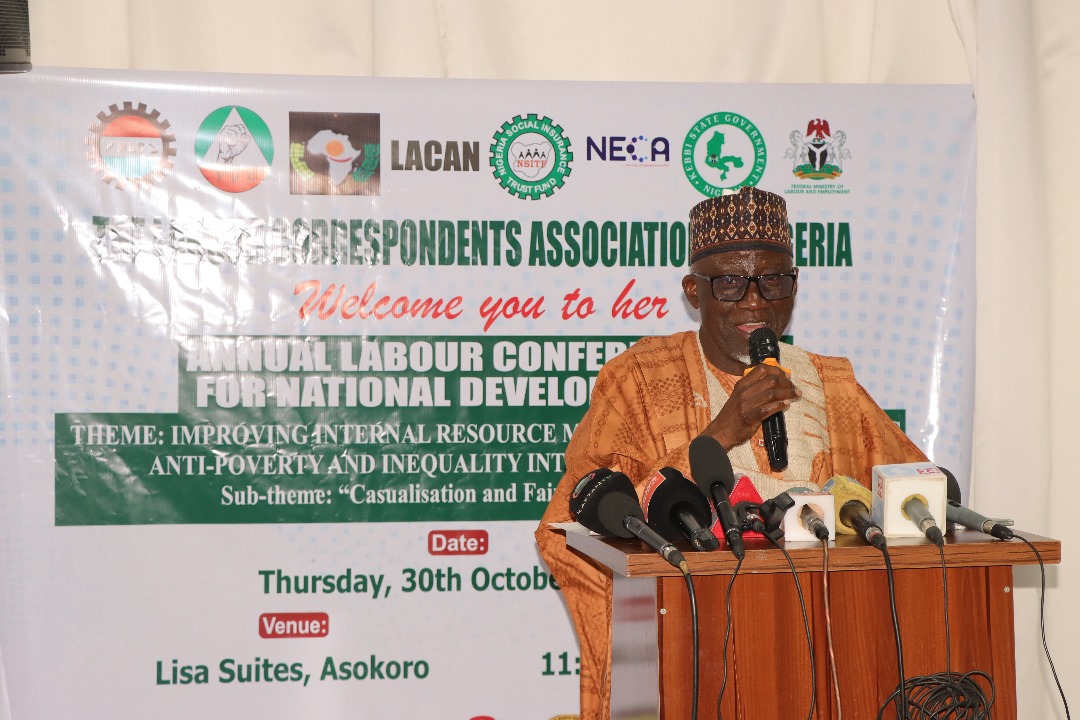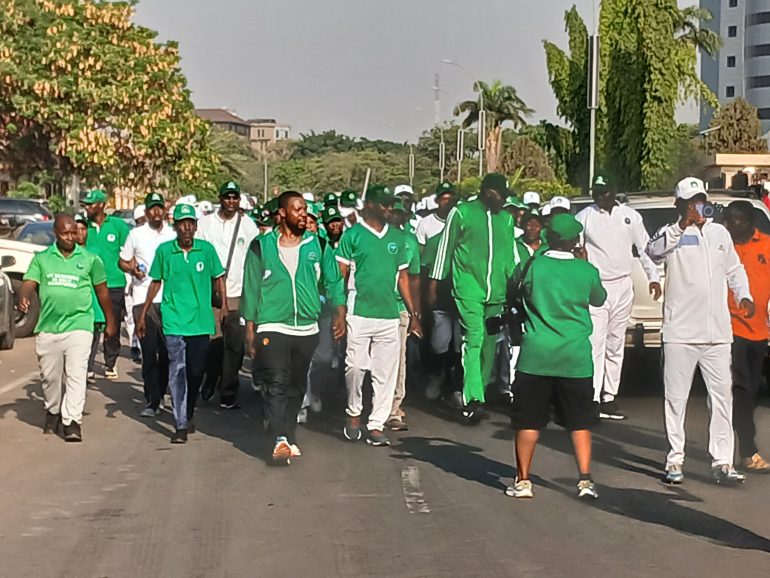Listeners:
Top listeners:
-
play_arrow
104.9FM Best rock music demo
-
play_arrow
Demo Radio Nr.1 For New Music And All The Hits!
-
play_arrow
Demo Radio Techno Top Music Radio
-
 play_arrow
play_arrow
Police Commissioner Launches Weapon and Riot Control Training for FCT Officers Democracy Radio
Dingyadi Reaffirms FG’s Commitment to Decent Work, Fair Labour Practices

By Chinedu Echianu
The Minister of Labour and Employment, Muhammad Maigari Dingyadi, has restated the Federal Government’s commitment to promoting decent employment, protecting workers’ rights, and ensuring fair labour migration as part of efforts to drive inclusive national growth.
Speaking at the Annual Labour Conference of the Labour Correspondents’ Association of Nigeria (LACAN) held on Thursday, in Abuja, the Minister commended the Association for its consistent role in deepening public understanding of labour and employment issues through balanced reporting and engagement with stakeholders.
Dingyadi described the conference sub theme — “Local Content, Casualisation and Fair Labour Migration” — as both “timely and strategic,” noting that it aligns with Nigeria’s development agenda of protecting workers, promoting fair employment practices, and strengthening local participation in key industries.
“The principle of local content is not merely an economic policy; it is a statement of national self-determination,” the Minister said. “It ensures that Nigerians are active participants and beneficiaries in industries operating within our borders through employment, skills development, and value addition.”
He noted that the Federal Government, through policies like the Local Content Act and other sectoral frameworks in manufacturing, ICT, and renewable energy, is deepening domestic capacity and employment opportunities. The Ministry, he added, works closely with agencies such as the National Directorate of Employment (NDE), Industrial Training Fund (ITF), and Nigeria Employers Consultative Association (NECA) to equip Nigerian workers with relevant vocational and technical skills for global competitiveness.
On the issue of casualisation, Dingyadi described it as one of the most pressing challenges in Nigeria’s labour landscape, lamenting that insecure and poorly remunerated jobs undermine productivity and social stability.
“A workforce that lacks job security cannot plan for the future, invest in education, or contribute meaningfully to social security systems. Addressing casualisation is central to our pursuit of social justice and inclusive growth,” he stated.
He revealed that the Ministry, through its Labour Inspectorate Department and Tripartite Industrial Relations Framework, is intensifying compliance monitoring and engaging employers to regularize non-standard employment arrangements. The ongoing review of Nigeria’s labour laws, he added, would introduce clearer provisions to regulate emerging forms of work, including contract and platform-based labour.
On labour migration, the Minister emphasized the need for fair and ethical practices that protect migrant workers and promote development for both source and destination countries. He disclosed that Nigeria has expanded Bilateral Labour Agreements (BLAs) with countries like Saudi Arabia and Qatar, setting clear terms for recruitment and workers’ welfare.
He also highlighted the implementation of a Fair and Ethical Recruitment Strategy and a Code of Conduct for Private Employment Agencies, developed in collaboration with the International Labour Organization (ILO) and the International Organization for Migration (IOM), to eliminate illegal intermediaries and curb trafficking for labour exploitation.
“Our goal is to ensure that every Nigerian who migrates for work does so under safe, dignified, and lawful conditions — and that labour migration becomes a pathway to empowerment, not vulnerability,” Dingyadi said.
The Minister lauded labour correspondents for their vital role in shaping public discourse on employment, industrial harmony, and workers’ welfare, urging them to continue upholding professionalism and factual reporting.
He reaffirmed the Ministry’s commitment to continuous engagement with LACAN, providing accurate data and insights into ongoing labour reforms.
“The strength of our nation lies not merely in its natural resources but in the productivity, creativity, and resilience of its people. A just, fair, and decent world of work is not only a moral imperative — it is an economic necessity,” Dingyadi concluded.
The conference brought together government officials, labour leaders, journalists, and other stakeholders to deliberate on strategies for strengthening Nigeria’s labour environment and ensuring sustainable national development.
Written by: Toyeebaht Aremu
Similar posts
Copyright Democracy Radio -2024


